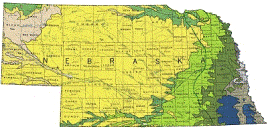United States Geological Survey

United States Geological Survey: Staff Publications
ORCID IDs
Burke J. Minsley http://orcid.org/0000-0003-1689-1306
Document Type
Article
Date of this Version
2021
Citation
Geophys. J. Int. (2021) 224, 590–607
doi: 10.1093/gji/ggaa393
Abstract
The ability to quantify structural uncertainty in geological models that incorporate geophysical data is affected by two primary sources of uncertainty: geophysical parameter uncertainty and uncertainty in the relationship between geophysical parameters and geological properties of interest. Here, we introduce an open-source, trans-dimensional Bayesian Markov chain Monte Carlo (McMC) algorithm GeoBIPy—Geophysical Bayesian Inference in Python—for robust uncertainty analysis of time-domain or frequency-domain airborne electromagnetic (AEM) data. The McMC algorithm provides a robust assessment of geophysical parameter uncertainty using a trans-dimensional approach that lets the AEM data inform the level of model complexity necessary by allowing the number of model layers itself to be an unknown parameter. Additional components of the Bayesian algorithm allow the user to solve for parameters such as data errors or corrections to the measured instrument height above ground. Probability distributions for a user-specified number of lithologic classes are developed through posterior clustering of McMC-derived resistivity models. Estimates of geological model structural uncertainty are thus obtained through the joint probability of geophysical parameter uncertainty and the uncertainty in the definition of each class. Examples of the implementation of this algorithm are presented for both time-domain and frequency-domain AEM data acquired in Nebraska, USA.
Included in
Geology Commons, Oceanography and Atmospheric Sciences and Meteorology Commons, Other Earth Sciences Commons, Other Environmental Sciences Commons


Comments
Published by Oxford University Press on behalf of The Royal Astronomical Society 2020. This work is written by (a) US Government employee(s) and is in the public domain in the US.